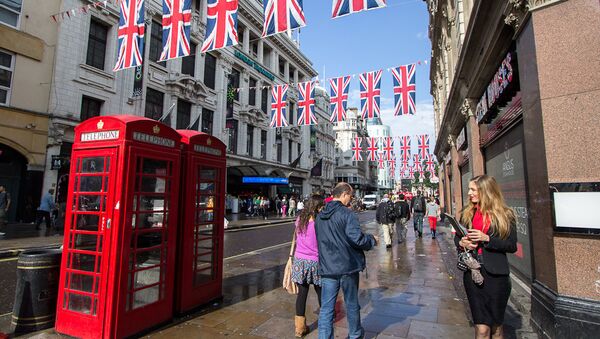The first evidence based research produced by the Joseph Rowntree Foundation, titled "The EU Referendum and UK Poverty," outlines the potential pitfalls the UK could face whether they decide to leave the EU or stay within the union.
The first evidence-based briefing of how the outcome of the #EUref on June 23 could affect people in poverty https://t.co/0Y49bOcDlK
— Joseph Rowntree Fdn. (@jrf_uk) June 7, 2016
Leaving the EU will save the UK US$13 billion — money which could be saved on poverty reduction.
However, leaving could also increase the cost of imported goods and services which would ultimately end up impacting those who are living in poverty.
Economy
The report looks at the impact of Brexit on the UK job market and the UK economy, looking at the pound first, many analysts have said the pound could be devalued by up to 20 percent. This would ultimately leave people poorer and less well-off.
From more jobs to safer streets, 60 seconds that sum up why we’re stronger, safer & better off IN Europe.https://t.co/9WJm01CU4E
— Stronger In (@StrongerIn) 7 June 2016
The Bank of England could also raise interest rates in the wake of a Brexit, which could lead to higher mortgage repayments, repossessions and ultimately homelessness.
Brexit could create a potential trade block as the EU is Britain's largest trading partner. In 2014, the EU accounted for almost 45 percent of all UK exports and 53 percent of UK imports. It is also estimated that 3.3 million jobs in the UK are linked to the EU, if the UK leave this number will change dramatically.
We were told we wouldn't pay it. But we did. #VoteLeave pic.twitter.com/T8txhv4kpu
— Vote Leave (@vote_leave) June 6, 2016
When assessing a potential Leave, the evidence also looks at the fact that if Britain do decide to stay, they will have to continue contributing to the EU.
In 2015, the UK contributed US$18.8 billion, which included the UK rebate. That works out to be approximately US$300 for every person in the UK per year. Now the UK does receive funding back from the EU, for example money will go towards less developed parts such as Cornwall, Wales and Northern Ireland.
What is the relationship between the UK & EU? Explore the data in our #UKperspectives series https://t.co/T8Sd3V7GFX pic.twitter.com/IxLFXTmIL3
— ONS (@ONS) May 26, 2016
However, if the UK decides to leave the EU they will be able to keep the contributions they make into the union, but how much they retain depends on the deal they negotiate.
Migration
The next issue faced by voters if the EU vote to Leave or Remain is concerned with migration and the impact this is having on poverty.
In 2015, an estimated 257,000 citizens from other EU countries migrated to the UK. Most of the studies suggest that EU migrants make a positive contribution to the UK economy, by paying taxes and not claiming benefits. However, the concern for those who want to leave the EU is that migration is playing a part in significantly reducing wages and employment opportunities for British workers and increasing pressures on UK housing.
If we stay in the EU, we will have to accept permanent uncontrolled immigration. How will our public services cope? pic.twitter.com/PMU8YsRhno
— Vote Leave (@vote_leave) June 7, 2016
EU migration can have a positive impact on the country, an increased supply of skilled workers can help benefit declining industries and contribute to higher wages. However, the benefit is considered to be very small. The Bank of England said that from 2004, the impact EU migration has had on those born in Britain and in semi/unskilled industries, was 1 percent over eight years. Given that the average pay per hour for jobs of this type is US$8, this means that there is a reduction in annual pay rises of a penny every hour.
The fiscal impact of migration is a positive one however, adding less than 1 percent to Britain's GDP.
The Leave campaign are "perpetuating an economic con‐trick on the British people" — please WATCH & RT:https://t.co/emWcgYY1XP
— Stronger In (@StrongerIn) 6 June 2016
The access EU migrants have to calming welfare is also a key issue but migrants do make up a small number of those on benefits (approximately 2.5 percent). In addition to this, part of the renegotiations between David Cameron and the EU was to ensure that the UK will limit in-work benefits during the first four years for newly arriving migrants as well as recalculating payments for EU migrant workers who have children living overseas.
The EU debate is filled with many questions and much uncertainty. If the UK remains in the EU, David Cameron's renegotiation package could impact UK poverty.
If the UK votes to leave, there is a question around what kind of arrangement the UK can make with the EU. One thing is certain; the vote on the June 23 will bring about change.


